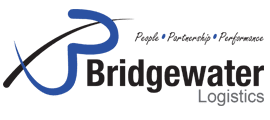One of the major capabilities an experienced third-party logistics (3PL) provider brings to a business is optimised route planning to ensure the timely delivery of product.
The ability to optimally plan routes is also a significant competitive advantage at a time when the efficiencies and competitiveness of supply chains are being negatively impacted by diesel fuel hikes.
“Large and small businesses turn to Bridgewater Logistics to assist them in designing and developing leaner supply chains. First and foremost, this relies upon our ability to optimise distribution routes and then further trim unwanted fat by providing cost-effective access to a well-maintained and fuel efficient fleet of trucks, as well as skilled drivers,” Quinton de Villiers managing director of Bridgewater Logistics, says.
Bridgewater Logistics is a leading local supply-chain solutions specialist that operates both distribution and line-haul divisions to provide a comprehensive transport logistics solution to its clients.
In terms of route planning, the company’s team of experienced and skilled logisticians consider all possible constraints, including possible unexpected scenarios, such as detours and delays at customer sites.
No detail is spared in the process with due attention given to an array of factors, such as delivery frequencies and vehicle sizes.
Vehicle weight, for example, can significantly impact fuel consumption, and this means that heavier loads should be delivered first and, if this is otherwise impossible, planning should be done in such a way that they are collected last so that they only have to be transported back to the depot.
In addition, significant fuel savings will be achieved by combining collections and deliveries in the same truck in an approach that will also increase asset use and turnaround times.
Just as much weight is given to reducing additional time and empty running kilometres by avoiding needless returns to the depot.
Moreover, optimal route planning also takes into consideration driver hours to ensure high levels of health and safety are maintained when transporting goods.
Bridgewater Logistics’ logisticians also use data obtained from trips and vehicle tracking devices to constantly improve routes.
“Importantly, this approach also provides us with an opportunity to continuously benchmark our performance and review progress. Bridgewater Logistics is a business that has always been willing to constantly improve to break traditional boundaries in road transport logistics, a key to our ongoing success over the years,” De Villiers concludes.


